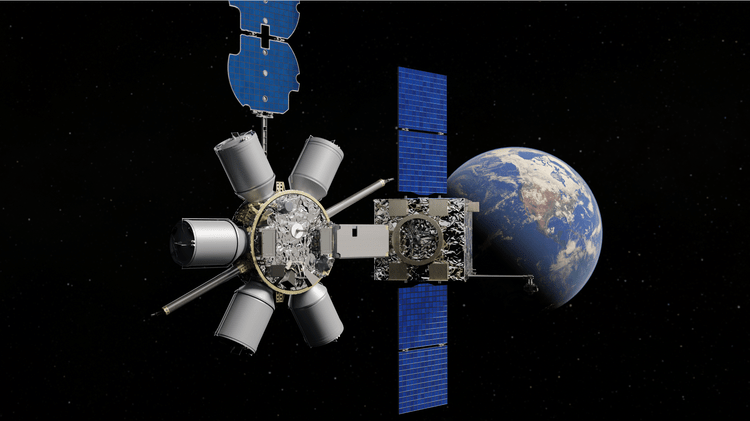Space Force looks to ramp up space mobility, logistics research in FY ’25

The Space Force wants to kick-start funding in fiscal 2025 for two space mobility and logistics projects — including R&D of on-orbit refueling capabilities and an effort to use rockets to carry supplies across the world.
The two initiatives fall under the service’s space access, mobility and logistics (SAML) portfolio, which in total is requesting $20 million in research, development, test and evaluation funds in FY ’25.
According to the Space Force’s budget justification documents, the focus of the program through 2026 will be to “establish the foundational capability areas through RDT&E, technology demonstrations, operational integration and fielding of Point to Point Delivery (P2PD) services and on-orbit mobility services, to include refueling.”
The service wants $16 million for work on in-orbit servicing and refueling technology, budget documents show.
Leaders at U.S. Space Command have stated they want to be able to refuel and repair the military’s satellites from space — something that is either incredibly difficult or impossible to accomplish today — in order to conduct “dynamic space operations.”
In response to Spacecom’s demand signal, the Space Force stood up a servicing, mobility and logistics (SML) program office at Space Systems Command in September. Since then, the office has been advocating for sustained funding and planning efforts for space logistics capabilities, particularly those related to satellite refueling.
During a Defense One webinar broadcasted Tuesday, Chief of Space Operations Gen. Chance Saltzman said the investments toward on-orbit refueling represented a key new mission set for the service.
“For the first time, we’re starting to invest small amounts … in demonstrations and capabilities to start to explore what you would need on orbit to be able to service and maintain satellites. This gives us some opportunities to explore dynamic maneuvering and maneuver without regret” of using up too much fuel, Saltzman said. “These are things that will make our satellites harder to target and more defensible, and so we’re starting that investment process to see how that mission set would play out.
Notably, the Space Force wants to exploit commercial capabilities that are already operational, budget documents show. Industry has repeatedly called on the service to provide a clear demand signal — as well as critical funding — for the new-ish commercial space logistics sector that can serve as the foundation for the market’s growth.
The effort “will maintain connectivity to the burgeoning commercial market to capitalize on industry advancement to qualify and onboard additional on-orbit capabilities as they mature,” justification books state. “As an ‘anchor tenant’ this may include providing last-mile development funding for government purpose modifications, demonstrations, landscape assessments and architecture development.”
Meanwhile, the Air Force Research Lab’s experimental Rocket Cargo Vanguard program is now moving to the Space Force under a new name: Point-to-Point Delivery (P2PD). The service is requesting $4 million in fiscal 2025 for the brand new program to leverage research conducted by AFRL and transition the capability to the Space Force.
The goal of the Rocket Cargo concept is to use commercially available rockets to quickly launch military supplies from one point on Earth to another. The program has been an AFRL Vanguard since 2021, and since then research has focused on how to safely land rockets on non-traditional surfaces both near structures and in remote locations; engineer a rocket cargo bay and logistics for rapid loading and unloading; and airdrop supplies from rockets after they’ve launched in order to deliver them to austere environments.
Funding in fiscal 2025 will “support the detailed engineering design necessary for a P2PD service provider to perform airdrop payload delivery,” according to justification books. In the long term, the Space Force wants P2PD to support U.S. Transportation Command’s resupply missions, the documents state.



